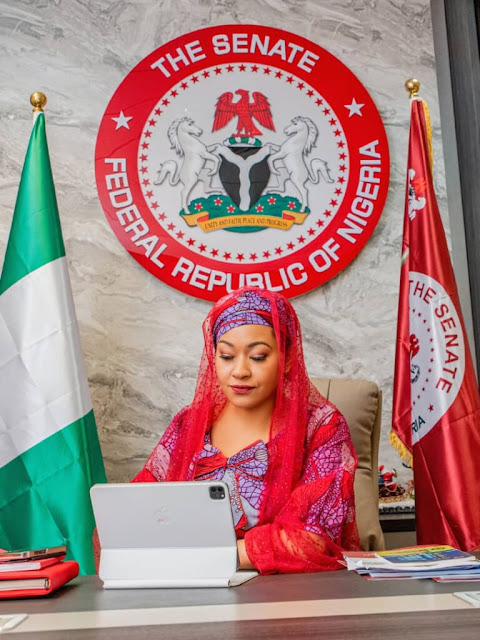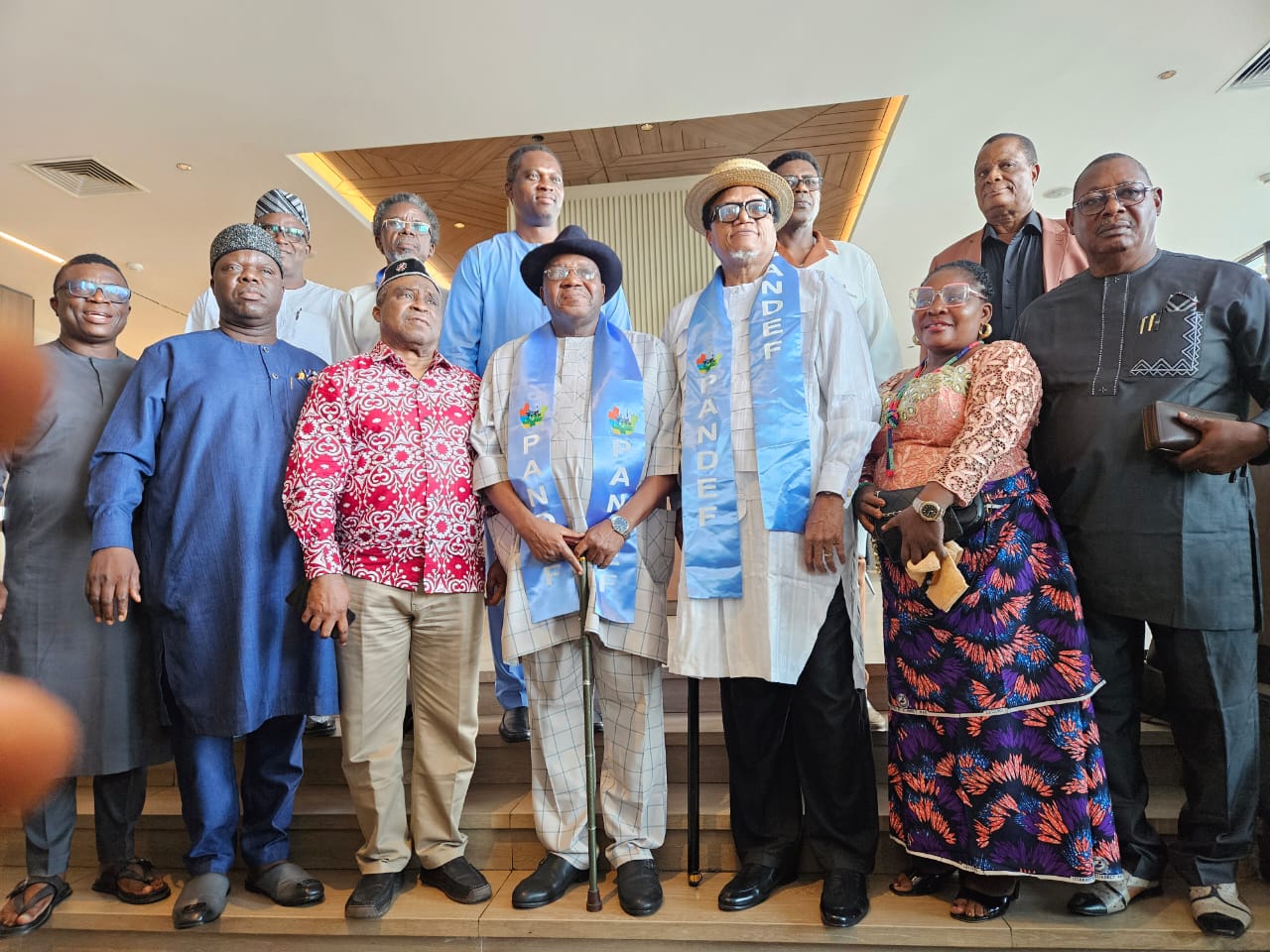In a bold and impassioned plea, Dr. Obiageli “Oby” Ezekwesili, the founder of the School of Politics, Policy and Governance and a former Nigerian Minister of Education, has called on the Nigerian Senate to immediately reinstate Senator Natasha Akpoti-Uduaghan, representing Kogi Central Senatorial District under the People’s Democratic Party (PDP). Ezekwesili’s statement, issued on September 4, 2025, denounces the Senate’s continued suspension of the lawmaker as a flagrant misuse of legislative authority and a direct assault on Nigeria’s Constitution. The controversy, which has now spanned over six months, has ignited a national conversation about the state of democracy, the rule of law, and the accountability of elected officials in Nigeria.
In a personally signed statement titled “Senate’s Constitutional Overreach in the Case of Senator Natasha Akpoti-Uduaghan,” Ezekwesili urged Nigerians to unite in resisting what she described as a persistent constitutional violation. The senator’s suspension, initially imposed on March 6, 2025, followed her allegations of sexual harassment against Senate President Godswill Akpabio. Despite the expiration of the six-month suspension period, the Senate issued a letter on September 4, 2025, informing Akpoti-Uduaghan that her suspension would continue indefinitely. This decision has drawn sharp criticism from Ezekwesili and other advocates of good governance, who argue that it undermines the principles of justice and democratic representation.
The Genesis of the Controversy
The saga began when Senator Natasha Akpoti-Uduaghan, a vocal and prominent figure in Nigerian politics, accused Senate President Godswill Akpabio of sexual harassment. The allegation, which sent shockwaves through the political establishment, prompted the Senate to suspend her for six months, a decision that many critics, including Ezekwesili, deemed excessive and retaliatory. The suspension was intended to last until September 6, 2025, but the Senate’s subsequent decision to extend it indefinitely has escalated the controversy, raising questions about the motives behind the action and the broader implications for Nigeria’s democratic institutions.
Ezekwesili’s statement highlights the gravity of the situation, framing it as a deliberate attempt by the Senate to silence a lawmaker who dared to challenge a powerful figure. “Rather than transparently investigate the allegation against the Senate President, an errant political class has used this opportunity to taunt citizens on how successfully they have captured the Nigerian state, perpetrating unlimited abuse with zero accountability or fear of consequences,” she wrote. This critique underscores a broader concern about the misuse of power within Nigeria’s political system, where allegations of misconduct are often met with institutional resistance rather than impartial investigation.
Legal and Constitutional Concerns
At the heart of Ezekwesili’s argument is the assertion that the Senate’s actions are unconstitutional and in direct violation of a court ruling. The Federal High Court, presided over by Justice Binta Nyako, had previously declared the initial six-month suspension “excessive” and a violation of constitutional provisions. The court’s ruling emphasized that suspending a lawmaker for such an extended period, particularly in a legislative calendar with only 181 sitting days per year, effectively deprives constituents of their right to representation. Despite this judicial pronouncement, the Senate’s decision to extend the suspension indefinitely has been described by Ezekwesili as a “fundamentally flawed” attempt to justify an unlawful act.
The Senate’s defense for maintaining the suspension centers on the claim that the matter remains before the courts, and no administrative steps can be taken until the legal process is concluded. Ezekwesili has vehemently rejected this position, arguing that pending litigation cannot serve as an excuse for perpetuating an unconstitutional act. She stressed that Justice Nyako’s ruling explicitly confirmed Senator Akpoti-Uduaghan’s right to resume her duties, particularly since the initial suspension period has lapsed. “The Senate must recall Natasha Akpoti-Uduaghan without delay and prove that Nigeria’s commitment to justice, constitutional governance, and the rule of law is more than rhetoric,” Ezekwesili declared.
The indefinite suspension raises significant constitutional questions about the separation of powers and the role of the judiciary in checking legislative overreach. Nigeria’s Constitution grants the Senate the authority to discipline its members, but this power is not absolute and must be exercised within the bounds of the law. By defying a court order, the Senate risks undermining the judiciary’s authority and eroding public trust in democratic institutions. Ezekwesili’s statement serves as a clarion call for Nigerians to defend the rule of law and hold elected officials accountable for their actions.
The Broader Implications for Nigerian Democracy
The controversy surrounding Senator Akpoti-Uduaghan’s suspension is emblematic of deeper systemic issues within Nigeria’s democratic framework. Since the return to civilian rule in 1999, Nigeria has made significant strides in consolidating its democracy, but challenges such as corruption, abuse of power, and weak institutional accountability continue to hinder progress. The Senate, as a key pillar of the country’s legislative system, is expected to uphold the highest standards of integrity and serve as a check on the executive branch. However, actions such as the indefinite suspension of a lawmaker raise concerns about the misuse of legislative authority for political purposes.
Ezekwesili’s critique highlights the danger of “weaponizing” laws to silence dissent or protect powerful interests. She warned that “democracy is endangered when laws are weaponized and lawmakers repeatedly act outside the law.” This statement resonates with broader concerns about the state of governance in Nigeria, where allegations of misconduct are often swept under the rug, and those who speak out face retaliation. The failure to transparently investigate Senator Akpoti-Uduaghan’s allegations against Senate President Akpabio further fuels perceptions of a political class that prioritizes self-preservation over public accountability.
Moreover, the prolonged suspension deprives the people of Kogi Central Senatorial District of their right to representation. Senators are elected to serve as the voice of their constituents, advocating for their interests and contributing to the legislative process. By preventing Senator Akpoti-Uduaghan from resuming her duties, the Senate is effectively disenfranchising the voters of Kogi Central, a move that Ezekwesili argues is both unjust and undemocratic. “Every moment court orders are defied by those in power teaches our children that law is optional for the powerful,” she cautioned, emphasizing the long-term consequences of such actions for Nigeria’s democratic culture.
Senator Natasha Akpoti-Uduaghan: A Profile in Courage
To fully understand the significance of this controversy, it is worth examining Senator Natasha Akpoti-Uduaghan’s background and her contributions to Nigerian politics. A lawyer, entrepreneur, and advocate for social justice, Akpoti-Uduaghan has emerged as a prominent voice in Kogi State and beyond. Born and raised in Kogi, she has deep ties to her constituency, which has been a cornerstone of her political identity. Her entry into politics was driven by a desire to address systemic issues such as poverty, unemployment, and infrastructural decay, particularly in Kogi Central.
Akpoti-Uduaghan’s political journey has been marked by resilience and determination. In the 2019 general elections, she ran for the Senate under the Social Democratic Party (SDP) but was unsuccessful. Undeterred, she joined the PDP and secured the party’s nomination for the Kogi Central senatorial seat in the 2023 elections. Her victory was seen as a triumph for grassroots mobilization and a testament to her ability to connect with voters, particularly women and youth.
As a senator, Akpoti-Uduaghan has focused on issues such as youth empowerment, women’s rights, and economic development. She has been a vocal advocate for infrastructural improvements in Kogi State, including road construction, healthcare, and education. Her allegation of sexual harassment against Senate President Akpabio, while controversial, reflects her willingness to confront powerful figures and address sensitive issues. However, this boldness has come at a significant cost, as evidenced by her prolonged suspension and the ensuing political firestorm.
Oby Ezekwesili’s Role as a Champion of Accountability
Dr. Oby Ezekwesili’s intervention in this controversy is consistent with her long-standing commitment to promoting transparency, accountability, and good governance in Nigeria. A globally recognized figure, Ezekwesili has built a reputation as a fearless advocate for systemic reform. Her tenure as Minister of Education and her work with organizations such as Transparency International and the #BringBackOurGirls campaign have solidified her status as a moral compass in Nigerian politics.
In her statement, Ezekwesili admitted that she had nearly given up on advising Nigeria’s political class, which she described as “bent on self-destruction.” However, the gravity of the situation compelled her to speak out against what she sees as a fresh assault on democratic principles. Her call for the Senate to reinstate Senator Akpoti-Uduaghan is not merely a defense of one individual but a broader appeal for the preservation of Nigeria’s democratic institutions.
Ezekwesili’s critique also highlights the critical role of civil society in holding power to account. In a country where public trust in institutions is often fragile, voices like hers serve as a vital check on the excesses of the political class. By framing the issue as a collective defense of Nigerians’ right against abuse of public power, she has galvanized public attention and sparked a national conversation about the responsibilities of elected officials.
Public and Political Reactions
The controversy has elicited a range of reactions from the Nigerian public and political stakeholders. Supporters of Senator Akpoti-Uduaghan have rallied to her defense, arguing that her suspension is a politically motivated attempt to silence a vocal critic of the establishment. They point to her track record of advocacy and her commitment to her constituents as evidence of her dedication to public service. On social media platforms like X, hashtags related to the senator and Ezekwesili’s statement have gained traction, reflecting widespread public interest in the issue.
Conversely, some critics have questioned Akpoti-Uduaghan’s approach, arguing that her allegations against Senate President Akpabio were inflammatory and lacked sufficient evidence. They contend that the Senate’s decision to suspend her was a legitimate exercise of its disciplinary authority. However, the indefinite extension of the suspension has drawn criticism even from those who initially supported the Senate’s actions, as it raises concerns about fairness and due process.
Politically, the controversy could have significant ramifications for the PDP, which is already navigating internal divisions and the challenge of positioning itself as a viable opposition party ahead of the 2027 elections. Senator Akpoti-Uduaghan’s ability to navigate this crisis will be closely watched, as it could impact her standing within the party and her prospects for future leadership roles. Similarly, Senate President Akpabio’s handling of the situation will be scrutinized, as it may affect his credibility and influence within the Senate.
The Path Forward
For Senator Natasha Akpoti-Uduaghan, the immediate priority will be to address the allegations against her and seek a resolution to the suspension. A transparent and proactive response, including cooperation with any formal inquiries, could help restore her standing and demonstrate her commitment to accountability. Engaging with her constituents to address their concerns and reaffirm her dedication to their interests will also be critical.
For the Senate, the controversy represents a test of its commitment to constitutional governance and the rule of law. Reinstatement of Senator Akpoti-Uduaghan, in compliance with the court’s ruling, would signal a willingness to uphold democratic principles and restore public trust. Failure to do so risks further eroding the Senate’s credibility and fueling perceptions of institutional capture by a self-serving political class.
For Oby Ezekwesili and other advocates of good governance, the challenge will be to sustain public pressure and ensure that the issue remains in the spotlight. Their ability to mobilize civil society and galvanize public opinion will be crucial in pushing for meaningful reforms and accountability.
Conclusion
The ongoing controversy surrounding Senator Natasha Akpoti-Uduaghan’s suspension is a pivotal moment in Nigeria’s democratic journey. It underscores the fragility of the country’s democratic institutions and the urgent need for accountability, transparency, and adherence to the rule of law. Dr. Oby Ezekwesili’s call for the senator’s reinstatement is a powerful reminder of the importance of defending democratic principles and resisting the misuse of power.
As Nigeria grapples with this crisis, the actions of its leaders will have far-reaching consequences for the nation’s democratic future. For Senator Akpoti-Uduaghan, this is an opportunity to demonstrate resilience and commitment to her constituents. For the Senate, it is a chance to reaffirm its role as a guardian of democracy. And for Nigerians, it is a call to remain vigilant in the face of power and to demand a system that prioritizes justice and accountability above all else.







